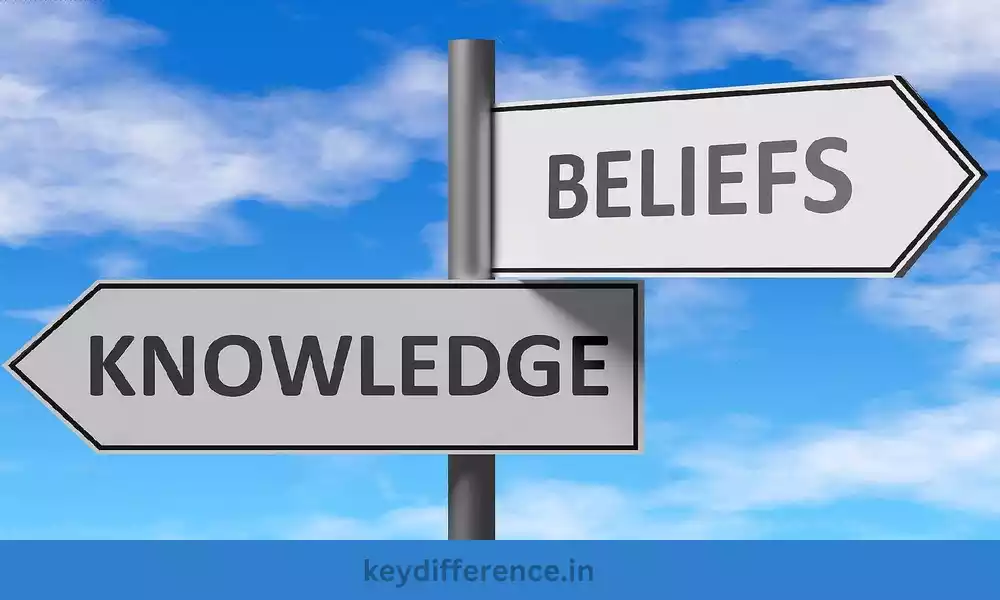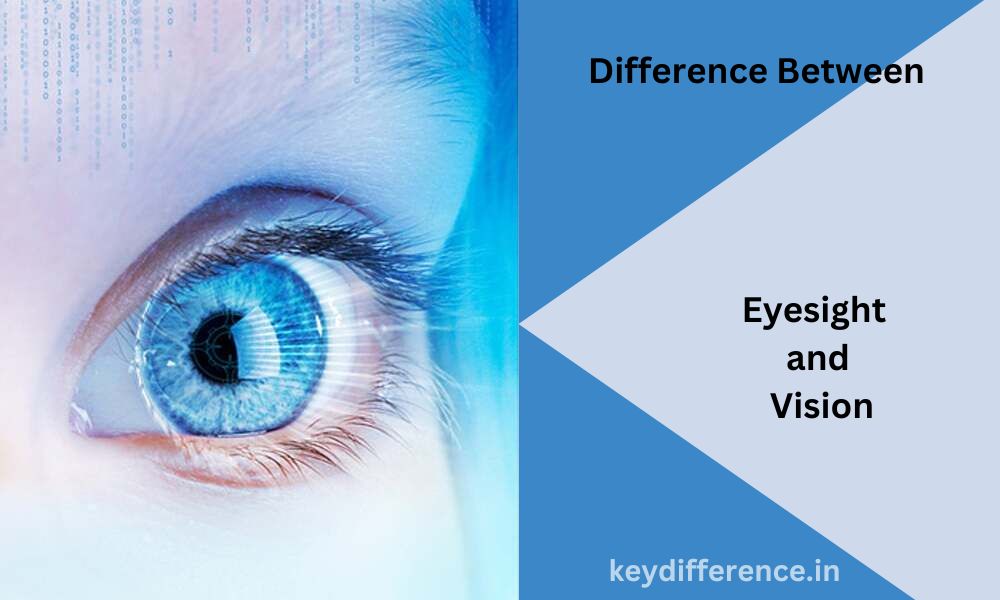Definition of Knowledge and Belief
Knowledge can be defined as any information gained through experience, education or reason and accepted as true and justifiable. Knowledge should be objectively verifiable and shareable amongst its recipients.
Belief is the mental attitude you hold about something even without evidence to back it up. Beliefs can be formed based on personal experiences, culture and religion as well as influences that differ depending on who’s viewing. They vary according to context.
Importance of Understanding the Difference Knowledge and Belief
Understanding the difference between belief and knowledge can be useful for multiple reasons.
Avoid making false claims. Confusion between belief and knowledge can result in harmful and misleading claims about medical treatments being spread – for instance if someone says they know about something but their knowledge is more based on personal conviction than scientific fact, this could put those relying upon that information at risk of becoming misinformed or even injured by it.
Making informed decisions requires understanding the difference between belief and knowledge in order to make educated choices based on available evidence. If someone wishes to make decisions based on facts rather than fictions they must also distinguish between knowledge and belief in order to do so successfully.
Understanding the difference between knowledge & belief allows individuals to examine and question their personal views, which in turn enhances understanding others better. When we recognize that people’s beliefs differ and they do not all hold similar viewpoints, our ability to empathize is enhanced considerably.
Understanding the distinction between belief and knowledge can assist people with making more effective decisions and will foster critical thought while dispelling false claims.
Comparative Table of Knowledge and Belief
Here is a table that compares knowledge and belief:
| Aspect | Knowledge | Belief |
| Definition | Information or understanding acquired through experience, reasoning or learning is considered true. | Mentality or belief that something is real or true, but without any evidence to back it up. |
| The Basis for the Use of | Justification, evidence, and proof. | Experiences, culture, religion and social factors. |
| Standards of Justification | Evidence that is objective and verifiable. | Personal conviction and subjective experiences |
| The degree of certainty | High level of certainty | The level of certainty can vary from high to very low. |
| Relationship with Truth | The knowledge is believed to be valid and true. | Beliefs may or may be false or unjustified. |
| Example | The Earth revolves around its sun. Water freezes when it reaches 0 degrees Celsius. | Existence of a superior power. A belief that one political ideology is better than another. |
Knowledge is based upon evidence and justification. Belief is based solely on subjective experience and personal conviction.
Knowledge is thought to be true and justifiable, whereas belief can be either true or justifiable.

Characteristics of Knowledge
Knowledge should be objective: That means it should not depend on personal beliefs, biases or preferences of its creator, yet be independent and tested by multiple people using identical methodologies.
Justification of Knowledge: Knowledge must be justified through empirical or logical arguments that demonstrate its support, rather than being grounded solely on blind faith and intuition.
Truth: Knowledge should always correspond with facts and be supported by empirical data, without contradictory opinions from different sources. Knowledge does not arise through wishful thinking or subjective interpretation but must come through objective observation and experimentation.
Transferability: Knowledge can be shared among others via education and research, providing others access to similar evidence and methods with which to build upon or expand it further.
Reliability: Knowledge that can be consistently replicated under identical conditions is considered reliable; that means it does not vary based on random factors or individual interpretation, but uses systematic and rigorous approaches in its creation and dissemination.
Knowledge should be objective, justified, true, transferable and reliable; founded upon empirical evidence and rational thought processes and built upon by others who communicate it further.
Characteristics of Belief
These are the characteristics of belief:
Subjectivity: Beliefs can be subjective as they depend on individual thoughts, experiences and interpretation. Culture, religion and upbringing all play an influence role here and may alter from person to person.
Conviction: Conviction refers to strongly held beliefs which often come with emotional attachment. Even when confronted by evidence to the contrary, conviction can remain strongly held and can be difficult to change even with supporting evidence.
Truth: Beliefs don’t necessarily reflect reality and should never be taken as objective proof; often times beliefs arise through intuition or faith as well as personal experiences which cannot always be verified independently.
Individuality: Beliefs can vary considerably for every person and even within one culture or religion they can hold different interpretations and adhere to differing ideologies and perspectives.
Non-Transferability : Beliefs that stem from personal experiences and emotions may be difficult to convey to those outside your circle, leading you to struggle in justifying or explaining why certain beliefs exist in other people’s eyes.
Beliefs are personal and subjective judgments formed based on personal conviction. While beliefs might or might not be factually true, their existence can be greatly impacted by social, cultural and personal factors and it may be hard to communicate or change them effectively.
Examples of Knowledge
Here are a few examples to demonstrate what knowledge means:
The Earth orbits around the Sun. Water will boil when heated up to 100deg Celsius.
Gravity is the force that pulls objects together, such as our body containing 206 bones. Water’s chemical formula is H2O; and Paris, the capital city, contains genetic material. Our DNA stores our genetic code.
In 1776, the United States declared independence from Great Britain and Albert Einstein first proposed his famous equation E=mc2.
Brain control of physical functions as well as cognitive processes is inextricable from bodily function and cognition. ]
Here are just a few examples of what has been gained through scientific research, education and experience; knowledge continually grows with each new discovery or perspective that emerges; thus knowledge continues its evolutionary cycle.
Examples of Belief
Want to know some examples of belief? For starters: Involvement with religious institutions such as churches. Believing in an overarching power such as God. Figuring that all events occur for a greater good.
Belief that certain political ideologies or parties are superior.
No person inherently good or evil.
Destiny or Karma determines one’s destiny; hard work and determination are keys to achieving success in any endeavor.
Belief in certain foods and supplements having curative powers; that personality traits can be determined by one’s astrological sign; afterlife existence and supernatural beings such as ghosts / supernatural entities exist are some examples of common misconceptions among religious communities today.
Beliefs tend to form on the basis of personal experience, cultural or religious tradition or values; beliefs also determine one’s behavior and decisions but sometimes can’t be supported with scientific facts or objective data.
Conclusion
Knowledge and belief are two distinct concepts, yet both play an integral part in shaping how we perceive and comprehend the world around us. Knowledge relies on empirical evidence and rational thought processes; conversely it can also be shared and transmitted between people easily.
Knowledge is objective and fact based, reliable and transferrable whereas belief can vary significantly – being formed on individual convictions, opinions and life experiences that may or may not have objective evidence backing it up.
Understanding the difference between belief and knowledge is integral for making sound decisions, remaining open-minded towards new perspectives, and respecting and appreciating all perspectives in society. It helps us make wiser choices.







